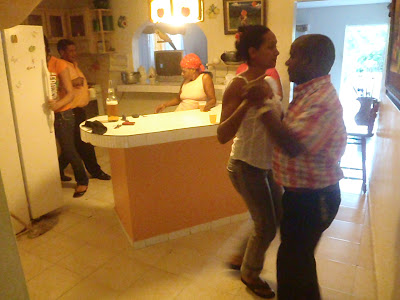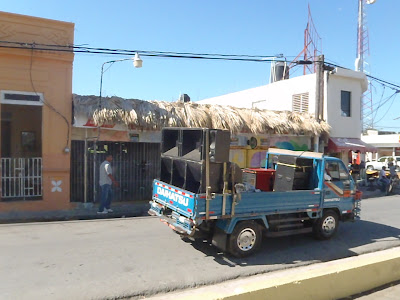 |
| Big Dead Place by Nicholas Johnson |
I picked up PCDR's worn copy of Big Dead Place in the volunteer lounge at Santo Domingo office. When I discovered it amongst the shelves of Greg Mortensen and Isabel Allende, I couldn't help but feel moved by the hand of fate. I had researched jobs in Antarctica back in 2009 when I started to rethink my place in the world and ponder the dark corners of the job market illuminated in books like Nickeled and Dimed and The Working Poor and the prospect of work in the so-called Highest, Driest, Coldest Continent still holds a special place in my imagination similar to that of work in the canneries of Alaska.
In Big Dead Place, Nicholas Johnson gives a candid, unpretentious account of the seasons he spent working as a general laborer in the Waste department of Antarctica's McMurdo Station. Through ambling, disjointed stories and anecdotes from his own experience, accounts from coworkers, and material clearly gleaned from researching heroic era of Antarctic exploration a picture emerges that is equal parts Catch 22, The Office, and another book I once read called A Working Stiff Manifesto. I think the following passage does of good job of conveying the author's tone:
"[After arriving in Antarctica's McMurdo Station for my first winter, I realized] I would be stuck in an outpost with all-you-can-eat desserts and and endless procession of theme parties. A small town where phone numbers are four digits but the budget is nine digits, where everyone had frequent flyer miles and no one had wisdom teeth. A town that courted ambassadors and senators with luxury accommodation in Building 125. A town with disco clothes and high-power microscopes. A town where a pet snail from a head of lettuce faces execution by government mandate. A town where going outside requires authorization. A town responsible for divorces. A town where corpses have reportedly been stored in the food freezer and where it is illegal to collect rocks.
This was America, I realized, all in a tight little bundle.
And there were no more flights out."
I remember thinking to myself, as I took in the chapters and paragraphs Big Dead Place with the kind of slow relish usually reserved for novels by J.M. Coetzee and Cormack McCarthy, that I would be sad when it ran out. And it's true. Now that I've finished the book, I feel as if I've finished running down the clock at work with a delightfully sarcastic friend who has a gift for creative self-expression and who shares my odd fascination with things most people never discover because it doesn't occur to them to look or them.






























